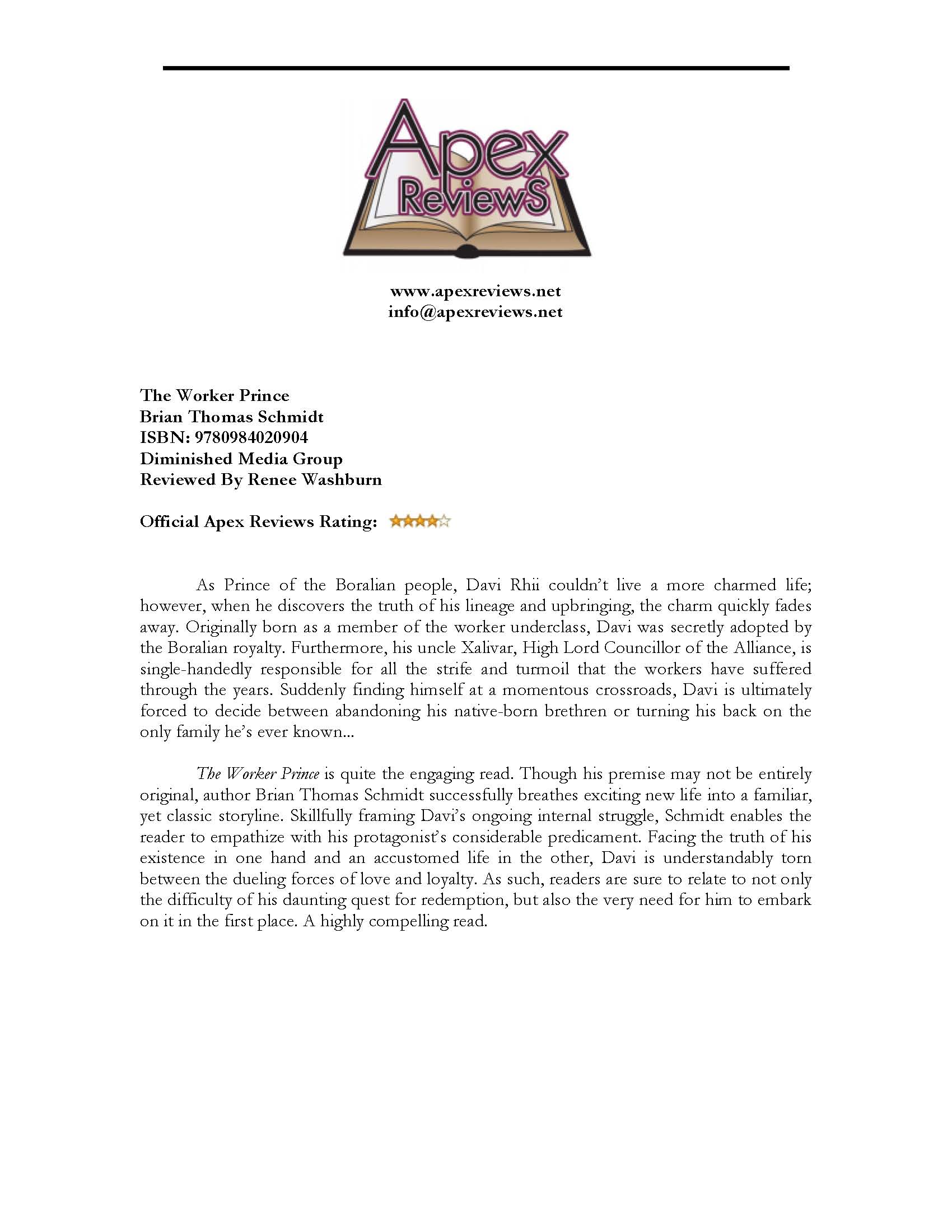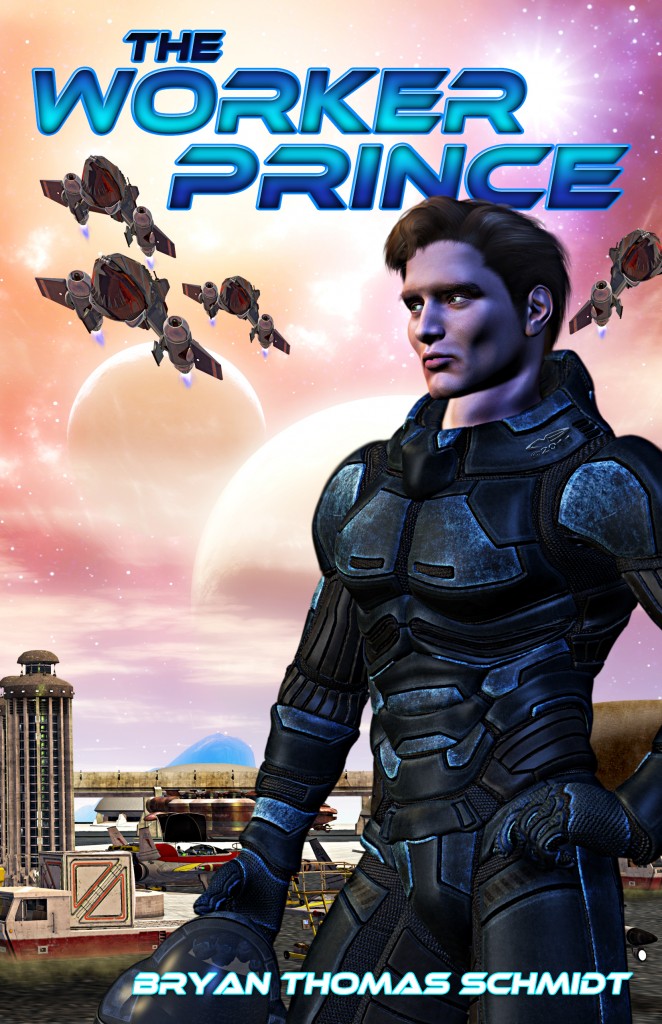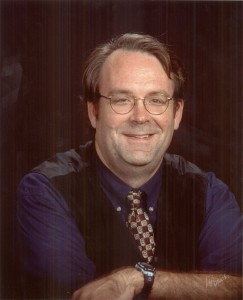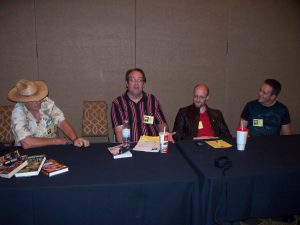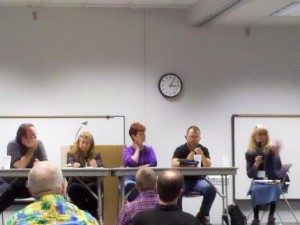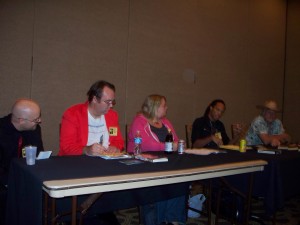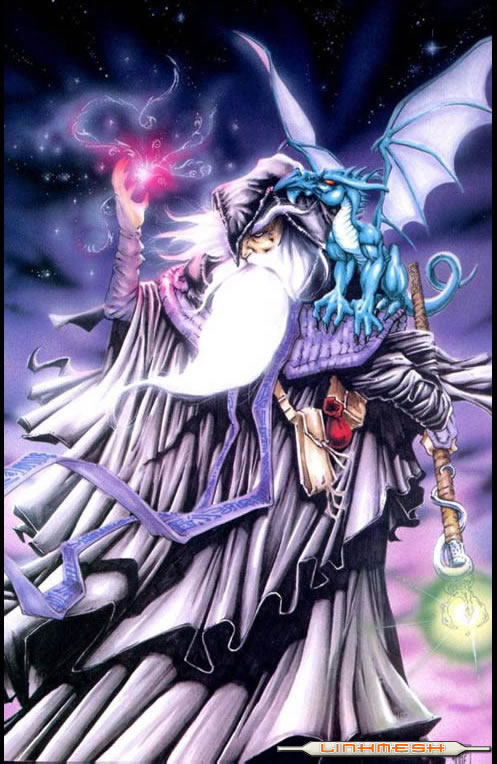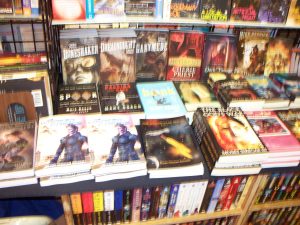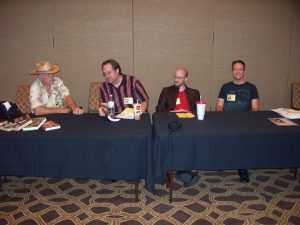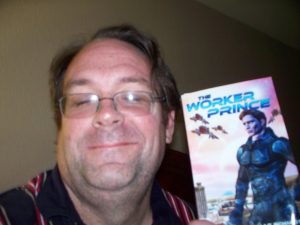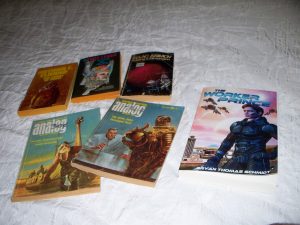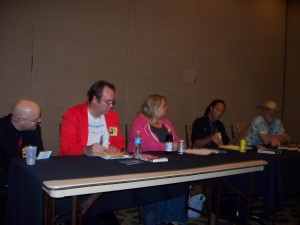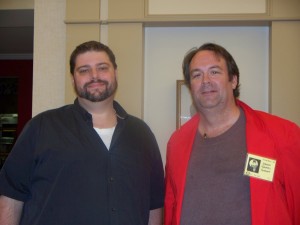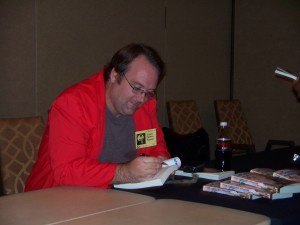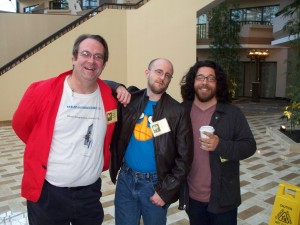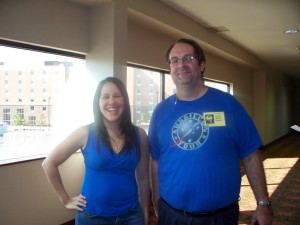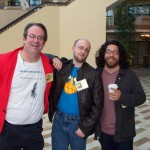Well, my first book tour and first ever blog tour was a lot of fun. Truly a blast. And I think all the bloggers and readers who participated. The comments were encouraging and helpful. The posts were fun to write and participate in. Timing was fairly smooth in most cases. And I think we provided worthwhile and diverse content for everyone. So thank you. I look forward to the next one and I look forward to hosting blog tours as well.
Here’s a list of all the posts broken down by category/type for easy access. I hope you continue to enjoy them and, please check out The Worker Prince. You can purchase it here: 1 5-star & 6 4-star reviews THE WORKER PRINCE $3.99 Kindlehttp://amzn.to/pnxaNm or Nook http://bit.ly/ni9OFh $14.99 tpb http://bit.ly/qIJCkS. If you do, please review it on Amazon and Barnes & Noble.com and send us a link. You can get a free chapter from the sequel before it releases next year.
Guest Posts: (Blog/post title)
SFSignal: 15 Science Fiction Classics With Religious Themes
Juliette Wade: The Worker Prince, Worldbuilding & The Clashes of Culture
Mary Pax: Coming Of Age & The Quest To Belong
Bibliophile Stalker/Charles Tan: 7 Tips For Being A Good Beta Reader
Functional Nerds: Working With A Small Press For Authors
Matthew Sanborn Smith: My Approach To Storytelling
Jeremy C. Shipp: The Importance of Strong Heroines
AISFP: Why I Like Old Fashioned Heroes
Patty Jansen: How To Promote With Social Media Without Offense
Moses Siregar: Relatable Characters
Livia Blackburne: SFFWRTCHT & How To Run A Social Media Event
Dialogues:
Jamie Todd Rubin: Dialogue: Golden Age SF’s Influence on The Worker Prince
Laura Kreitzer: Laura & Bryan Talk Writing
Worker Prince Novel Excerpts:
Anthony Cardno: Exclusive Excerpt From Chapter 10
Grasping For The Wind: Exclusive Excerpt of Chapter 3
Mae Empson: Interview & Excerpt: Chapter 7
Andrew Reeves: Author Spotlight/Excerpt from Chapter 5
Simon C. Larter: Excerpt
Reviews:
Jaleta Clegg: Review: The Worker Prince
Apex Reviews: Review: The Worker Prince
Grace Bridges: Review: The Worker Prince
Rick Copple: Review: The Worker Prince
Raymond Masters: Review: The Worker Prince
Jenn Baker/Pony Tails Book Reviews: Review: The Worker Prince
Lyn Perry: Review: The Worker Prince
Interviews:
Anthony Cardno: Author Interview
Brian Knight: Interview with me & Davi Rhii/Author Bio/Blurb
Travis Perry: http://travissbigidea.blogspot.com/ – Author Interview
Nicole Peeler: Interview with Lord Xalivar (antagonist, The Worker Prince)
Grasping For The Wind: Author Interview
Gene Doucette: Author Interview
Sarah Hendrix: Author Interview
Mae Empson: Interview & Excerpt: Chapter 7
William J. Corbin/Silverthorn Press: Author Interview
L.M. Stull: Interview
Andrew Reeves: Author Spotlight/Excerpt from Chapter 5
Other:
Podcast: Functional Nerds Episode #78 with Bryan Thomas Schmidt (hey, that’s me!)
Residential Aliens: Rivalry On A Sky Course (Davi Rhii prequel story)
Grasping For The Wind: Mediation Between Xalivar and Davi Rhii
Bryan Thomas Schmidt is the author of the space opera novel The Worker Prince, the collection The North Star Serial, and has several short stories forthcoming in anthologies and magazines. He’s also the host ofScience Fiction and Fantasy Writer’s Chat every Wednesday at 9 pm EST on Twitter, where he interviews people like Mike Resnick, AC Crispin, Kevin J. Anderson and Kristine Kathryn Rusch. He can be found online as @BryanThomasS on Twitter or via his website. Excerpts from The Worker Prince can be found on his blog.

